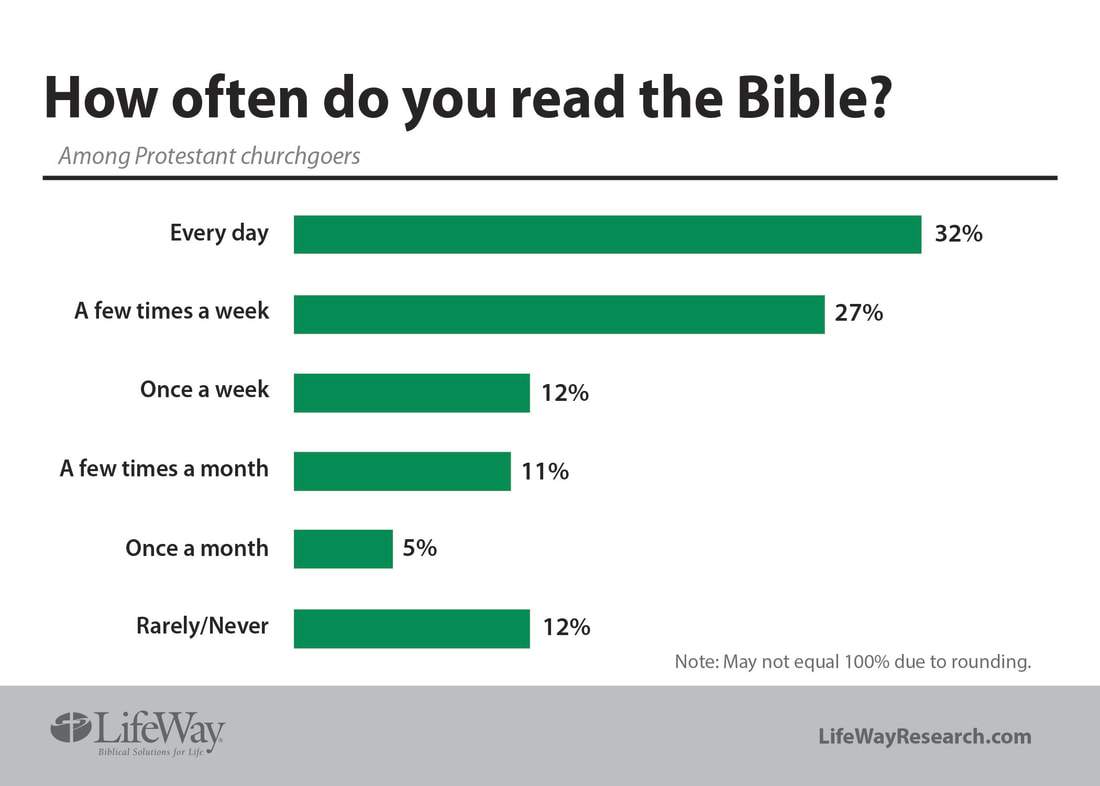 When I was a 23 year old doe-eyed seminary student, our pastor shared words that have stuck with me ever since: There is no excuse for any able bodied church member to not be on the children's ministry volunteer rotation Being a 23 year old doe-eyed seminary student who loved Jesus and loved our church and was naive and believed in what our pastor said, I walked to our children's ministry and volunteered. I filled out the background check and got the call for my assignment. Bed babies. It was great. I got to be like the honorary funcle. I was a jungle gym, a reader, I'd play with the kids, and occasionally get peed on. And I'd hope that the parents wouldn't get too mad when they got home and their baby's diaper was on backwards (it wasn't until later I learned the picture goes on the front). Looking back on those Sundays, I'm so glad for the chance to serve. Fast forward 16 years and I still firmly believe that. But I'd expand what Dr. Ewart said even further: There is no excuse for any able bodied church member to not serve regularly. Membership in the local church is more than attending. That's the starting point of assimilating. Merely attending isn't what God has gifted and called individual believers to do. Gravity has the chairs (or pews) covered. If that fails, the bolts will take over. Membership in the Body means participating in the life of the Body. That starts with attending, and extends into giving, praying, working, and serving.
Two things every member should ask themselves are: 1) Do I have a group to connect with? Groups form the relationship lifeline of a church. They keep people connected and in fellowship & accountability with one another. 2) Where can I serve with my gifts and experience? God has uniquely gifted every believer, and those gifts are meant to be used. Membership isn't about attending or taking. It's about giving and serving, it's producing something. Serving produces indescribable joy. It really does. You get a front row seat to what God is doing throughout the ministries of a church. Our children's volunteers are amazed when they see the Bible verses our kids are treasuring and storing, and how they are developing a hunger for their friends to know about Jesus. You miss that when you don't serve. Serving fosters deeper relationships. When you spend time laboring alongside other believers, it fosters a type of fellowship that can't be developed on its own. Serving glorifies God by reflecting the work of Christ. Think about it for a minute, the King of the Universe for whom all was created said of Himself "The Son of Man did not come to be served, but to serve...." Jesus lived a life of serving. Jesus washed feet. If Jesus were walking today, He'd be stacking chairs. When we refuse to serve, we're putting ourselves above what Jesus Himself was willing to do. Pastors, if you're reading this, foster a climate of serving. Talk about it with new members. Reinforce it in your preaching. Celebrate faithful volunteers. Church members, if you're reading this, jump on a rotation. You don't have to do everything. But you do need to do something.
1 Comment
 Several years ago I sat down with an idea and a notepad. After hundreds of text messages, hours of writing and editing, a few chapters scrapped, and a lengthy process of proofing, I'd written a book. It sold some copies. It's been used by a few churches and in a DMin seminar. I was pretty proud of it. A couple weeks ago I got a note from my publisher that my books were transitioning. In other words, the shelf life had come and gone. I'm so thankful to Sam, Jess, and Art for taking the time and the risk to publish an unknown (twice) and to offer incredibly helpful feedback all along the way. One thing that amazed me about the Rainer Publishing team was what followed in the note about the books transitioning. I was going to get the copyright back. That's practically unheard of. With that, I had full freedom and creative control over my work. It speaks of the humility and grace of the Rainer brothers to give back something like that. So what does it mean? As of September 30, Dream Teams and Start Well will no longer be under the Rainer Publishing banner. They'll be re-released as self-published works. I've wanted for some time to really do a significant revision to Dream Teams. One of its critiques was that it wasn't as clear how it could be used in smaller churches. I totally get that. When I wrote it, I was in a larger multi-staff church. Having pastored a smaller church for 3+ years now, I've seen how different the staff dynamics and relationships are. Every book, especially those written to be put into action, needs updating every now and then. I look forward to putting some time and thought into how Dream Teams can be better. The original intent behind Start Well was to write something that could be handed to a ministry leader walking into a new assignment. But a theme I didn't feel like I did enough with was the idea of hitting reset in the middle of a ministry assignment. I still love the idea of the good start, but perhaps the better way to explore lifetime faithfulness will be more than the start. Anyway, if I can ask the loyal readers for a couple favors, here you go: 1) Go check out the rest of the Rainer Publishing catalog. They have some great books out there. Buying those books helps support a publishing house committed to giving practical resources to the church. 2) Give some feedback. If you've read Dream Teams or Start Well, tell me what you liked and wished they had done better. 3) Buy a copy before they transition. I really believe in the message from both books. I wouldn't have written them if I didn't. So grab a copy. Learn how to build a strong team. Learn how to start a new assignment well. Until September 30, they'll be available in their original form. If you bought a copy of one of the books, thank you. I hope they were helpful to you. My hope in writing wasn't to make money selling a bunch, but to share ideas that I couldn't stop talking about.  The Keurig in my office is running nonstop and I have a stick horse in my office. It can only mean one thing: it's VBS week. It's one of my favorite weeks of the year. I get to preach the Sunday before in a t-shirt, we see our volunteers step up in full force, our church campus is transformed into the theme, and we get the chance to welcome kids and families onto our campus. Whatever your church does, whether it's VBS or a Sports Camp or Music Week or whatever during the summer, I think a healthy and fruitful ministry starts with you as the pastor. You can have an amazing children's ministry, but without the championing of the pastor, it's hard to succeed. Not every church or every pastor is able to be directly involved in the week. In a smaller church (like ours for example) you might need to jump in where you're needed. In a larger church, you may not need to be as directly involved, but you can still be the champion. Show up - Your presence means you think this is important, and few things in the life cycle of a church are as important as the chance to connect with dozens of families who are in your community but not part of your church. You may not be the group leader for the preschoolers, but you have no idea what your presence holding a door open, greeting visitors, high-fiving kids, and being available for spiritual decisions will mean. Use the pulpit - One thing we have as pastors is the pulpit, we have everyone's undivided attention for 30-45 minutes each Sunday. That is a sacred trust between a church, its pastor, and God. And with that comes the recognition that what you brag on and encourage will get people's attention. Recognize what's happening with VBS. Take time to pray in your service. Point out key volunteers and leaders who make it happen. Be part of follow-up - We can have the most amazing program, the funniest skits, the best set design, and the most flawless execution of snack creation. But if we don't follow up with those who come, and especially with those who have a spiritual decision, we've missed the boat. Having visitors and guests on our campus, attending our activities, and filling out cards isn't the end. It's the beginning of a journey of discipleship, assimilation, and life transformation. Don't miss it pastor. Be involved. Thank the volunteers - If your VBS is at night, some of your volunteers are trading a real dinner for fast food and leftover Teddy Grahams. If it's during the day, some are using vacation time from work to be there. Make sure you thank them. As awesome as your staff might be, and as supportive as you might be, VBS (and everything in the church) happens because of volunteers. Pro tip: Chick-Fil-A will do VBS certificates and volunteer appreciation cards. Nothing says "job well done" like Chicken Minis. How have you as a pastor been involved in your church's VBS? How have you been its champion?  Digging through an old shed yesterday I came across a couple signs that I didn't know we ever had. It was the signage for designated pastor & staff parking. I'm not against designated parking in some situations. If your church has an older pastor who isn't as mobile, a closer parking spot is a blessing to someone who genuinely needs it. There may be some other reasons where a designated parking spot is valuable. That's the beauty of the church: there's not a one-size-fits-all approach. But I'd like to ask you if you're in a leadership role in the church to dump your parking spot. You may not have a sign on it, but it's "your spot." It's close to the building. It's where you've parked for years. You get there early, so you claim the good ones. We've all been there. You're hauling in a trunk load of stuff for a Sunday so you get the close spot so you don't have to drag it through the rain. Or you've got young kids and you have to bring in the amount of gear normally reserved for summiting Everest. God's pattern for leadership is upside down. Last go first, first go last. Influence comes through serving, not power. Authority is from God, not a position.
That's why I'm a big believer that it matters where and how we park. It communicates loudly. And it shows people in profound ways how we view our leadership and its stewardship. I ask our staff and our leadership, as they are able, to park as far from the building as they can. We do this for three groups of people: 1. Guests - When we let our guests have close spots (I'd even encourage you to have labeled parking for them) we're communicating that we're glad they're with us. It can be daunting to visit a church for the first time. You don't know which doors are open, signage can be confusing, and you can't find a bathroom. Parking close lets you also have people who can be helpful first impressions on everything from directions to times to helping connect with people. 2. Physically Limited - Every spot a leader parks further away from the building is a spot that much closer someone who isn't as physically strong can have. No matter how many ADA-compliant handicap spaces we might have, for most churches it's simply not enough. That's why it's important for not just leaders but those physically able to yield to their brothers & sisters who simply cannot. In doing so, we show deference and love to our senior saints and to those who struggle. 3. Young Families - Our young families arrive with strollers, car seats, diaper bags, and a nervous system held together by prayer and strong coffee. This is where I think signage can be a blessing. If your church is willing and able, designate spaces near your children's ministry area for families with young children. Make their journey easier. If you can't designate spaces, parking further away allows you to serve and bless. A church is only as healthy as its next generation ministry. This Sunday, park a little further away. And as you walk toward the building, pray for those who'll be in the closer spots. For those guests, for those with physical limits, and for those young families. And if you have your own parking spot sign, dump it.  What if I told you the Wizard wasn't so magical at first? John Wooden's first 15 years at UCLA had a combined record of 285-125. Sounds respectable right? It's a winning percentage of 69.5%. But over the next 12 years, his record was 335-22, winning 93.8% of their games, 88 in a row, 10 national championships, and finishing undefeated 4 times. Pretty astounding isn't it? Here's my hot take: if John Wooden was coaching today, he'd have been fired by year 5. We'd never have gotten the Pyramid of Success, we'd never connect the names Walton & Alcindor. And for all of us who grew up Louisville fans, we'd never have hired a UCLA assistant named Denny Crum. The question I keep thinking about is, how many churches and pastors miss out on immeasurable blessings because they didn't stay the course? UCLA patiently built a dynasty, famously by Coach Wooden first showing players how to tie their shoes and put on socks. But when we live in the microwave culture, if you don't turn things around within a couple years you're a failure (look at the body count of coaches left in the SEC with Saban). I'm incredibly indebted to my friend Sam Rainer and the work of the Revitalize Network. I'm looking forward to being a part of their conference next year and learning from pastors and leaders in other churches looking to make the turnaround. My belief is that most pastors in struggling churches aren't content to simply exist. Turnaround Churches are Led by Pastors Who Stay - Let's be honest, pastoring is hard. It's harder when it doesn't seem like anything is working. It's harder when giving is down, when attendance numbers aren't what "they used to be," and it's hard when you wonder if your family or your sanity can take it much longer. But a church that's going to make the turn is going to have to be led by someone who will stay. I'm not saying a lifetime. But when people say it takes 4-5 years to even start to make significant inroads, you can't be surprised churches are in the decline when pastors bolt every 3 years.
Turnaround Churches are Fed the Word Faithfully - When asked about the Reformation, Martin Luther's response was "The Word did the work!" The same thing happens in a church that makes the turn. They've been fed, regularly, the Word. They're fed faithfully, consistently, and joyfully. Their worldview is shaped and formed by the Bible. Their faith is informed. Their souls are encouraged. Their witness is emboldened. Sermonettes can't do that. It's like a diet of cotton candy. Sounds nice but it won't nourish. Hey pastor, keep plodding. Turnaround Churches are Committed to Outreach - Churches who want to make the turn are committed to reaching out into their community. When churches and pastors take an adversarial approach to their community (an "Us vs. Them" mentality) they shouldn't be surprised that their witness is dim. Outreach is more than knocking on doors or having an event on campus. It's built through relationships. Pastors, do you know the principals at the schools near you? Do you know the names of the business owners around your church? For all of us, do we have friendships with lost people? Turnaround Churches are Willing to Change - Change is hard. We have Disney passes and we see the angry comments people make when a ride is closed or a new pavilion is put in. Familiarity breeds nostalgia. It happens in the church too. But churches that are unwilling to change are signing their own death certificate. It might take a few years (or longer if they have money in the bank), but the death rattle is there. Every church must be willing to change. Not the message. Not the Gospel. But we must be willing to change. David Kinnaman asked a question that's never left me: "Do we love our traditions more than we love our children?" Turnaround Churches are Guided by Prayer - Churches who want to turn the corner can't simply have prayer as an obligatory part of their services, it has to be something that's part of your DNA. If you want to know the health of your church's prayer life, think about what's mentioned at your prayer meetings. What gets shared more, health requests or mission requests? We should certainly pray for the sick and for the wounded to be healed. But when we spend all our time praying to keep the saints out of heaven, we're missing something. Prayer must guide every step of a church's process, and be so ingrained in its DNA that even guests get a sense something is going on. Does your leadership team spend time in prayer? What about in your worship services? What about in your own life? Turnaround Churches Emphasize Development > Hiring - Hiring someone to do something is really easy. Just give them a job description and sign the check. When there's a need, we can farm it out. Whether it's musicians or nursery workers or even ministry leaders, we're missing out when we answer needs with a paycheck. Development looks different though. It's where we are working with people to put them in positions of service and leadership as a part of their Christian ministry and devotion. Instead of hiring out your children's workers, why not develop a handful of volunteers who can not only serve but own a ministry? Churches who make the turn may have to attach a vocational commitment to a role as it grows, but we shouldn't look at that as our first choice. Turnaround Churches are Built to Last - Sadly, at UCLA the followers of Wooden haven't found as much success. Even the one coach who won a championship was pushed out the door. Coaches who won a majority of their games were fired. One was reported to get death threats. For all the good that Wooden did, it wasn't built to last. The same thing happens in our churches when everything gets dependent on us or on a small group. When something happens, the train comes off the rails. I think a lot of this is connected to the first, that pastors who fail to stick around leave behind them unfinished business that will never get completed. Hey churches, if your pastor were to get called away tomorrow or hit by a bus before Sunday, would things continue? Or would they revert back to the way they were? What have you seen in churches that turn the corner? The research arm of LifeWay Christian Resources recently published the findings of a massive study on 2,500 people who identify as churchgoers and their discipleship practices. The paradigm was the 8 Biblical Signposts which is the foundation for the curriculum Bible Studies for Life, and is a helpful way to assess and categorize ways of spiritual growth. The study focused on the first, Bible Engagement, which led to some very surprising findings (see below).
The first place to start is with ourselves as leaders. Are we regularly engaged in the Bible for our own personal growth, or are we only in the Bible as a preparation for teaching? We cannot expect others to do what we are not doing ourselves. One of the most powerful pictures of ministry and teaching I've seen was from my pastor in seminary who talked about ministry as an overflow of what was going on inside our own spiritual lives. If our well was dry, if our joy was weak, if our fellowship with God was lacking, we shouldn't be surprised that our ministry stunk.
The second is to look at what we are encouraging and teaching our congregations about Bible Engagement. I think we drop the ball on this in one of two ways: we minimize the importance of Bible engagement, or we make Bible engagement a bar too high to reach. We make it a bar too high to reach when we turn a delight into a burden. I cringed once hearing a pastor chastise people who didn't spend an hour in the Bible each day. But we also minimize it when we shrug off spiritual discipline as an excuse for apathy. So how do we take something so important, and something that we would all agree is essential, and encourage ourselves and our congregations to greater faithfulness? Technology - Set an alarm. Download a reading plan. Get into a text thread with someone for accountability. Take that device in your pocket and look at it as a means for spiritual growth if you can harness it. Incremental Goals - The reason weight loss plans don't work is that people set ridiculously unattainable goals. Christians get discouraged when they set ridiculously unattainable goals for their spiritual lives. If you're reading this and you don't like where you are in your spiritual growth, then set an incremental goal of reading a chapter a day (hint: if you want to get in the practice try reading the Gospels, Mark and John are a great start). If you're a regular reader, set an incremental goal of memorizing a verse a week. If you're Super Christian, then go full on Andy Davis! Find a Plan - I'm not endorsing one over the other, so here's a link to the Google Search results for "Bible Reading Plan." Want to know the right one? The one you pick. The point is, whatever you do, do what you're able to and what spurs you on. We depend on grace, so the bigger win in Bible engagement isn't that you're spending a certain amount of time or reading a certain number of chapters, but that it's something you do regularly.  With it being Fourth of July week, it's a helpful reminder for all of us to take a step back, take a deep breath, and relax. Our pulpits yesterday were filled with the myriad of views about America: God's last hope for the world, A Nation to be reclaimed, A fallen moral giant, or for the really expository guys it was just another Sunday. Behind all of it is a spectrumed dichotomy of worldview. Trevin Wax, who says things much smarter than any of us, made the observation in an article for The Gospel Coalition: -Some (younger typically) view America as a Babylon, with the Church as a faithful remnant committed to redemption and transformation -Some (older typically) view America as an Israel, with the Church responsible to reclaim and restore a political & social climate that once was As pastors, we're going to have a church across the spectrum. And as pastors, we are charged with the oversight, instruction, and formation of the entire body. With that in mind, can I offer some pointers about how to lead somewhere between Israel and Babylon? 1. Don't pick fights - Ultimately, it's not that big a deal. This is, as theologians would say, a third level issue on the theological triage. Your opinion of if we should have flags in worship, should sing God Bless America, or any other raging debate, doesn't really matter that much. Pastors, we can (and should) have our opinions and positions on these issues. But we must also measure our positions against the wisdom of pushing beyond what's biblical or prudent. Whatever your position is, remember that there will be people in your congregation who differ. Is this really worth picking a fight over? Or is this better to, as Paul suggests in 1 Corinthians 6:7, take an L? 2. Preach the Gospel, not Americana - The Cross invites men and women of all nationalities, all tribes, all tongues to come kneel before King Jesus. Heaven is promised to be a tapestry of colors and languages and flags who all worship as one before the Lamb. For the sake of the nations, preach Christ. For the sake of the lost, preach Christ. People won't be saved by returning to values or by making anything great again. People are saved through hearing about what Christ has done for them in His death and resurrection. 3. Praise God for freedom - Whatever your view on the spectrum, you can and really should take time to praise God for freedom. What we have been given as Americans is not only unique in Christian history but also in modern times. Religious liberty is guaranteed in our Constitution. And with it comes the freedom to gather for worship and preach without fear of government intrusion or seeking favors. We operate as a free church in a free state (thank you Roger Williams and Virginia Baptists!). This is great grace. Many of our brothers & sisters around the world worship and live in fear of a repressive and persecutive government. We don't. And that's worth celebrating. 4. Listen to Each Other - Full disclosure, I'm in the Babylon camp. I have a different view of America's founding and its identity as a "Christian Nation" than many others do, even in our church. But I want to know those who disagree and why they believe what they do. I want to know their experiences and their upbringing and what made them come to the conclusions and perspectives they do. James reminds us to be quick to listen and slow to speak, and we'd be wise to do that with our disagreements. Those who are more on the Israel side aren't there blindly, their view is held with conviction and conscience and is shaped by profound experiences. 5. Remember the temporary - On Thursday our nation will turn 243 years old. That sounds old until we remember that Japan has existed with an Emperor for millennia, England has since shortly after the time of the Roman Empire, and the Krelin of Russia was built before Columbus sailed. Even with these old nations, our time is limited. We are not guaranteed our tomorrow. At the end, when all nations have fallen and Creation itself is redeemed, the only banner that will fly is Jesus. All of this is temporary. And because it's temporary, it's urgent. As we lead between Babylon & Israel, we cannot lose sight of the urgency of the Gospel to our neighbors and to the nations. These resources are helpful across the spectrum:
-Five Observations About Younger Southern Baptists (Trevin Wax) -America: From Israel to Babylon (Rod Dreher) -Is America a "New Israel" or a "New Babylon"? (Trigger101) -Patriotism & the Gospel in American Churches (Jimmy Scroggins) -Letter from a Minister about Corporate Worship (Chip Stam) -Should Patriotism Have a Place in Worship? (Desiring God) -Patriotism & Worship (David Brumbelow) |
Scott M. DouglasA blog about leadership and the lasting legacy of family ministry. Archives
August 2023
Categories
All
|

 RSS Feed
RSS Feed



